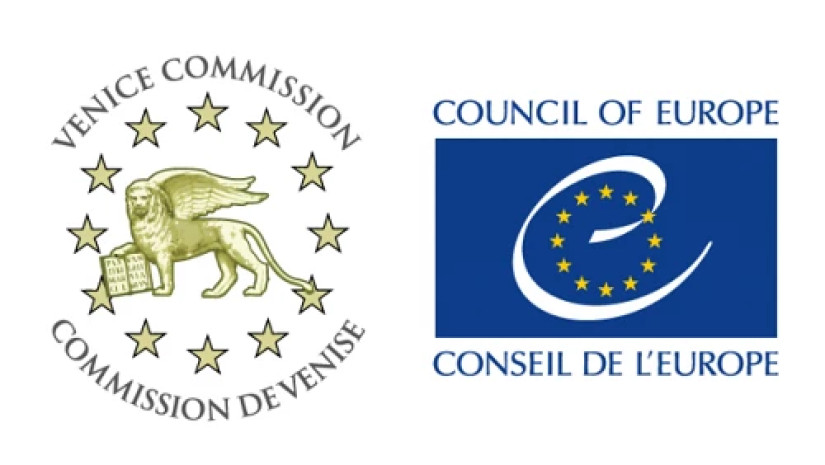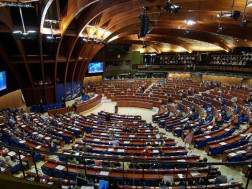The Venice Commission publishes its interim opinion on Georgia’s draft law on De-oligarchisation.
According to the conclusion, limiting the influence of “oligarchs” in political, economic and public life is certainly a priority for a state wishing to achieve a democratic system governed by the rule of law.
“Venice Commission supports the goal of eliminating or at least reducing this negative influence. Nevertheless, de-oligarchisation is a very complex issue, and the choice of the means to achieve it is of decisive importance if the system is to be effective while respecting democracy, the rule of law and fundamental rights,” it reads.
The Venice Commission supports the intent of the draft law to attempt to eradicate or reduce the influence of “oligarchs” over public life.
“The Commission has identified two approaches as to the means of addressing this complex issue; a multi-sectorial, systemic approach, which has a preventative effect and targets numerous fields, such as legislation relating to media, anti-monopoly, political parties, elections, taxation, anti-corruption and antimoney laundering, etc.
Another approach that can be called “personal” seeks to target the persons who may qualify as “oligarchs” through specific criteria, such as wealth, media ownership, etc., by limiting their means to influence economic, political and public life. The personal approach has thus a rather punitive character and entails the risk of violation of several human rights, unless strong guarantees of due process are put in place, and protections against violation of political pluralism and the rule of law.
The Venice Commission favours a more systemic approach, which includes the strengthening of the legislation and the institutions that work in the various sectors, in order to enable efficient cooperation and mutual assistance between them. While the Venice Commission considers the “personal approach” as generally problematic, it does not categorically exclude all the elements of such an approach, notably insofar as they relate to illegal or criminal acts. The Commission wishes to stress once more that this approach requires to put in place strong procedural guarantees to prevent violations of both human rights and the rule of law.
An analysis of the measures of the draft law demonstrates that these may lead to violations of fundamental rights protected under the ECHR and that the draft law gives the Government too much influence over the process. In this interim opinion, the Venice Commission outlines how, in particular, the process of collecting, assessing, storing and processing personal data on persons potentially designated as “oligarchs” by the Government, the stigmatisation associated with the publication of information on persons designated as “oligarchs” in the register of the Government, the requirement for persons designated as “oligarchs” to submit declarations of assets and the requirement upon public officials to declare their contacts with persons designated as “oligarchs” and/or their representatives may constitute an infringement of the enjoyment of rights under Article 8 ECHR. Similarly, the Commission considers that prohibiting persons designated as “oligarchs” from financing political parties, election campaigns, other political campaigns and rallies and demonstrations “with political demands” may infringe their rights under Articles 10 and 11 ECHR”, the conclusion reads.
The Venice Commission says that it is aware that enjoyment of the rights under Articles 8, 10 and 11 ECHR is not absolute and can be restricted.
“In analysing whether the restrictions of these rights of persons designated as “oligarchs” can be justified, the Venice Commission, first of all, recognises the reality and prominence of the phenomenon of so-called “oligarchisation” and does not dispute that this undermines democracy and the rule of law. As such, the Venice Commission considers that there is a legitimate aim for interference with Articles 8, 10 and 11 ECHR. However, the vagueness of the criteria used to designate a person as an “oligarch”, the broad discretion of the Government in interpreting and applying these criteria, its lack of independence/impartiality, the lack of due process guarantees and effective remedies afforded to persons designated as “oligarchs”, as well as the lack of proportionality and consideration for other less-intrusive measures make it difficult to justify these restrictions. While the ultimate decision on this is for a court to make, the Venice Commission finds that the measures proposed by the draft law as it stands are difficult to reconcile with Articles 8, 10 and 11 ECHR.
Given the issues and high risks identified above, the Venice Commission considers that the “personal approach” taken in the draft law, which defines and stigmatises persons on the basis of unclear criteria, carries a high risk that will lead to human rights violations without achieving the aims pursued. The risk of arbitrary application of the Law is even higher in the light of public statements, indicating that once adopted, it will be applied to the opposition,” the document reads.
The Venice Commission offers specific recommendations to improve the draft law.
















